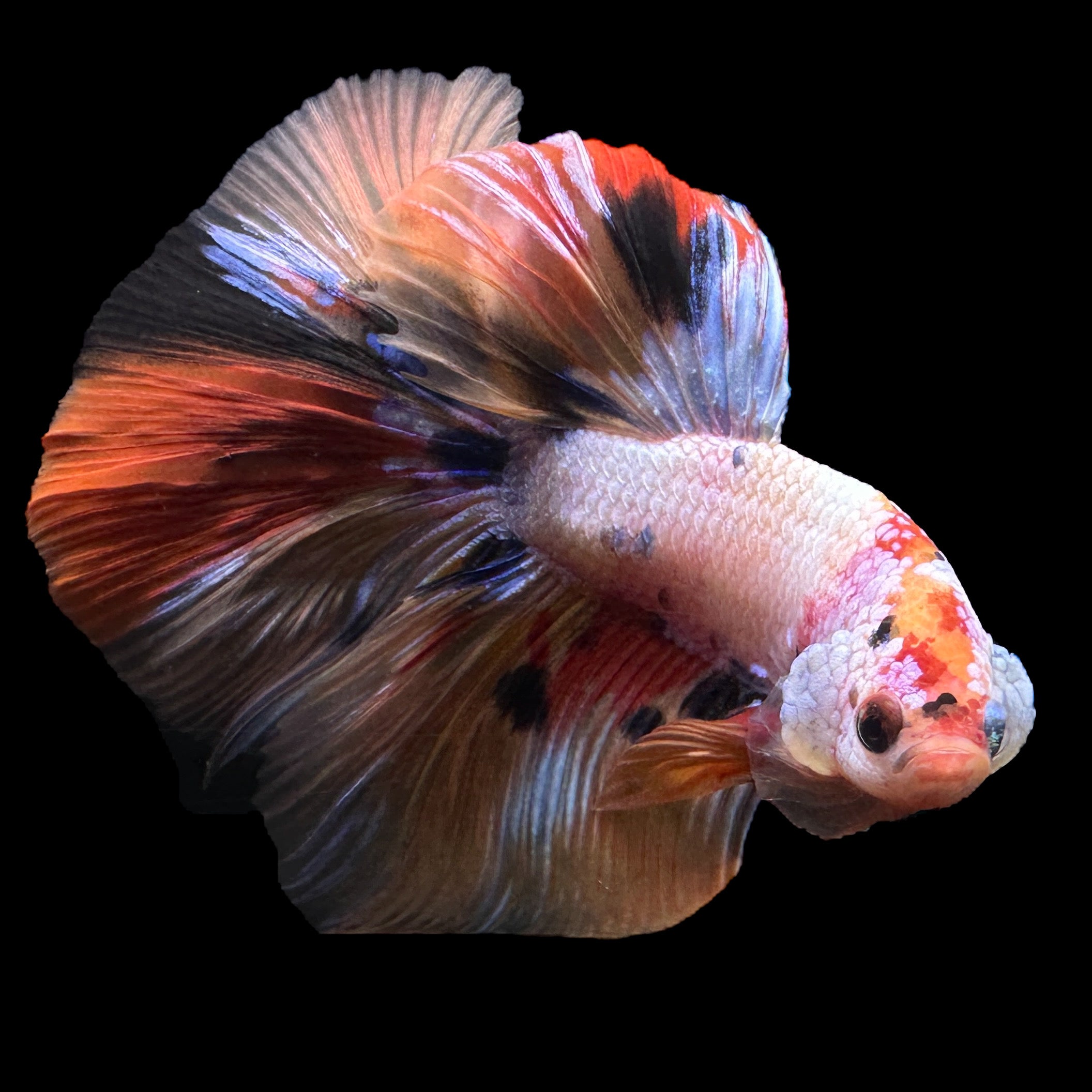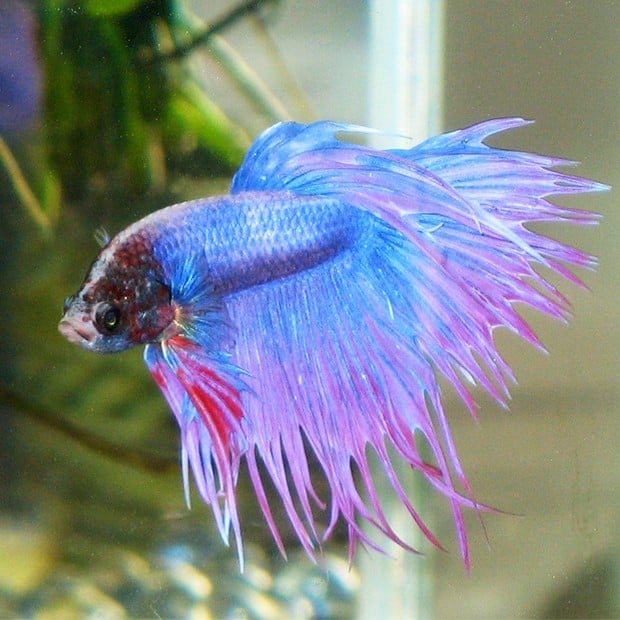Just how to Create the Perfect Betta Fish Environment at Home
Just how to Create the Perfect Betta Fish Environment at Home
Blog Article
The Ultimate Overview to Betta Fish Treatment: Essential Tips for Maintaining a Healthy and Growing Fish Tank Setting
Efficient Betta fish treatment requires a detailed understanding of their distinct ecological and physiological needs. Developing an ideal aquarium begins with picking the right container size and ensuring optimal water problems, which are important for the health and health of your Betta.
Choosing the Right Tank
Picking the appropriate storage tank for your Betta fish is critical to ensuring its wellness and well-being. Bettas flourish in settings that mimic their natural habitats, which normally are composed of calmness, cozy waters. A tank size of at the very least 5 gallons is recommended to supply ample swimming room, as smaller tanks can result in stress and health issues for these dynamic fish.
When selecting a container, think about the storage tank's shape and filtration system. A rectangular tank is more suitable to a bowl, as it supplies a lot more surface for oxygen exchange. Additionally, a dependable purification system is vital to keep water quality and decrease the regularity of water adjustments (betta fish). Nevertheless, it is very important to choose a filter with a gentle flow, as Bettas are not strong swimmers and may resist solid currents.
Temperature law is one more essential factor; Bettas prefer water temperatures in between 76 ° F and 82 ° F. Investing in a good heating system will make certain that the water remains within this variety, advertising a healthy and energetic way of life for your Betta. Supplying appropriate container decorations and hiding places will certainly help lower stress and anxiety and urge natural behaviors, further boosting your Betta's well-being.
Keeping Water Quality
Keeping optimal water high quality is essential for the health and wellness and durability of Betta fish. This calls for normal monitoring of different criteria, consisting of temperature, pH, ammonia, nitrite, and nitrate levels.
The pH level should preferably drop in between 6.5 and 7.5. Normal screening using a dependable water screening package can aid ensure these parameters remain within the proper arrays. Ammonia and nitrite degrees need to constantly go to 0 ppm, as also reduced concentrations can be poisonous to Betta fish. Nitrate levels ought to be kept under 20 ppm to stop long-lasting health and wellness issues.
Regular water adjustments are important to preserving water quality. It is recommended to transform 25-50% of the storage tank water weekly, depending upon the tank dimension and equipping levels. Using a high-quality water conditioner can aid remove harmful chemicals from tap water, guaranteeing a safe setting. In addition, including a robust filtration system can help in keeping water clearness and quality, providing a much healthier environment for your Betta fish.
Ideal Feeding Practices
Supplying a balanced diet regimen is vital for the health and vivid coloration of Betta fish, as their dietary needs play a substantial function in their overall health. Betta fish are carnivorous naturally, requiring a diet plan high in healthy protein. A mix of high-quality pellets, frozen or real-time foods such as bloodworms, brine shrimp, and daphnia can offer the essential nutrients they need.
Feed your Betta fish two to 3 times a day, offering only what they can eat within a couple of minutes to protect against overfeeding and maintain water high quality. Overfeeding can bring about weight problems and wellness issues, consisting of swim bladder condition. It is vital to check their description nutritional intake and readjust part dimensions accordingly.
In addition to protein, a balanced diet regimen must include vitamins and minerals to advertise optimum wellness. Consider supplementing their diet with high-grade flakes or pellets specifically developed for Betta fish, as these usually contain needed ingredients.

Creating an Ideal Habitat

Water top quality is paramount; preserve a temperature level in between 76 ° F and 82 ° F, and ensure the pH level varies from 6 - betta fish.5 to 7.5. Normal water adjustments of 25-50% per week will help keep contaminants at bay and make certain a secure setting
Incorporating plants and hiding areas is crucial, as Betta fish are naturally territorial and delight in having areas to check out and pull back. Live or silk plants, together with caverns and accessories, can produce a revitalizing atmosphere.

Routine Health Checkups
Performing regular wellness appointments is important for making certain the wellness of Betta fish, as early discovery of potential concerns can prevent significant health issue. These examinations must include a thorough exam of the fish's physical condition, actions, and environmental aspects.
Begin by observing the Betta fish for any indicators of distress, such as lethargy, loss of appetite, or unusual swimming patterns. In addition, inspect the fins and body for indications of staining, lesions, or fin rot, which can suggest infections or bloodsuckers. Frequently keeping track of the water high quality in the aquarium is similarly crucial; specifications such as pH, ammonia, nitrite, and nitrate degrees need to be maintained within optimum varieties to avoid stress and anxiety and illness.
Additionally, think about keeping a log of health observations and water high quality examinations. This document can facilitate the identification of trends or persisting problems. If any type of problems are spotted during the examination, it is vital to consult a veterinarian experienced in water pets. Timely treatment can make a significant distinction in the recovery of your Betta fish, making sure a lengthy and healthy and balanced life in a properly maintained fish tank setting.
Final Thought
In conclusion, successful Betta fish care hinges on producing and maintaining an ideal fish tank environment. By complying with these guidelines, aquarists can promote the health and vibrancy my latest blog post of Betta fish, inevitably resulting in a growing aquatic community.
Report this page